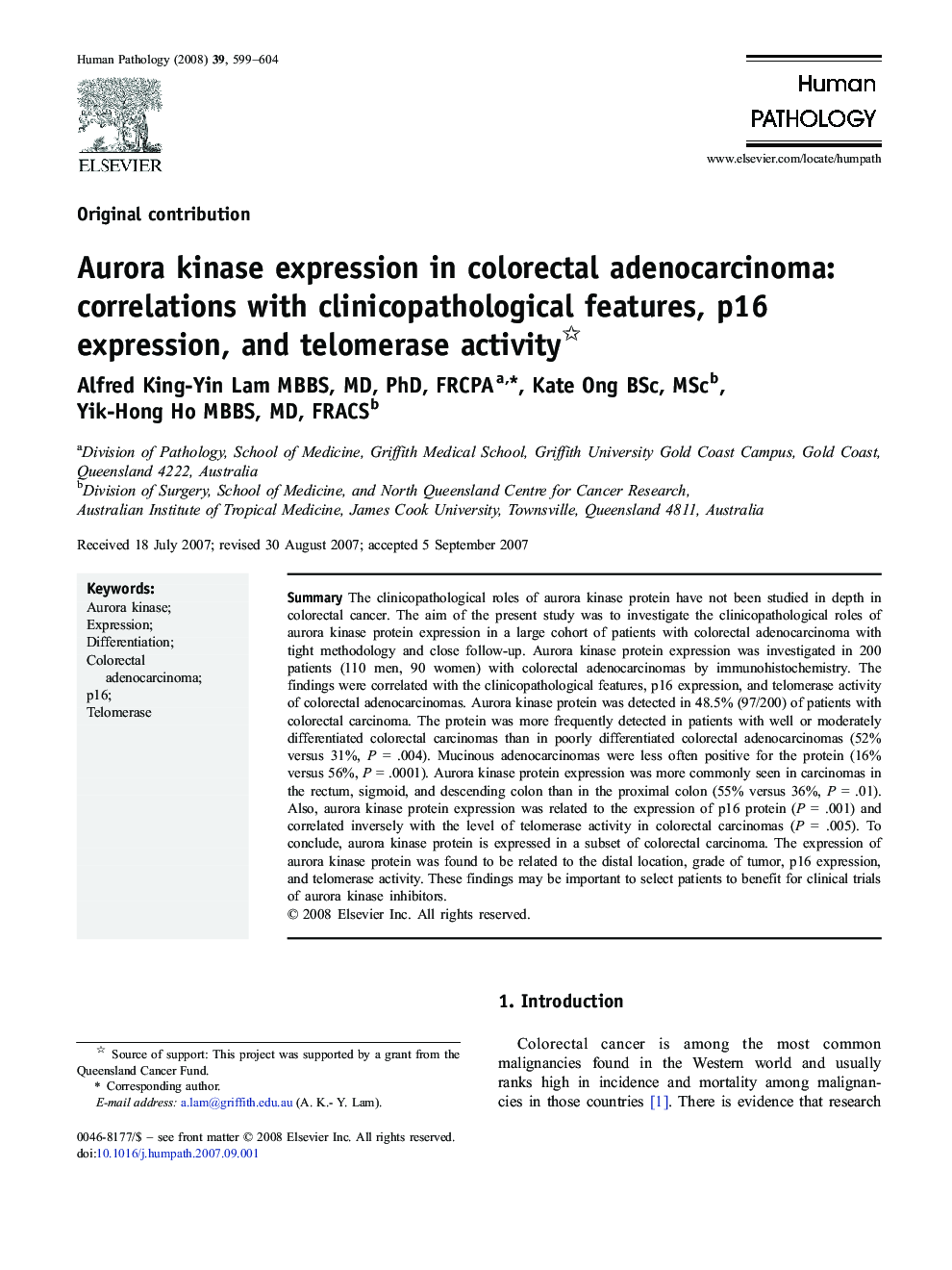| Article ID | Journal | Published Year | Pages | File Type |
|---|---|---|---|---|
| 4134948 | Human Pathology | 2008 | 6 Pages |
Abstract
The clinicopathological roles of aurora kinase protein have not been studied in depth in colorectal cancer. The aim of the present study was to investigate the clinicopathological roles of aurora kinase protein expression in a large cohort of patients with colorectal adenocarcinoma with tight methodology and close follow-up. Aurora kinase protein expression was investigated in 200 patients (110 men, 90 women) with colorectal adenocarcinomas by immunohistochemistry. The findings were correlated with the clinicopathological features, p16 expression, and telomerase activity of colorectal adenocarcinomas. Aurora kinase protein was detected in 48.5% (97/200) of patients with colorectal carcinoma. The protein was more frequently detected in patients with well or moderately differentiated colorectal carcinomas than in poorly differentiated colorectal adenocarcinomas (52% versus 31%, P = .004). Mucinous adenocarcinomas were less often positive for the protein (16% versus 56%, P = .0001). Aurora kinase protein expression was more commonly seen in carcinomas in the rectum, sigmoid, and descending colon than in the proximal colon (55% versus 36%, P = .01). Also, aurora kinase protein expression was related to the expression of p16 protein (P = .001) and correlated inversely with the level of telomerase activity in colorectal carcinomas (P = .005). To conclude, aurora kinase protein is expressed in a subset of colorectal carcinoma. The expression of aurora kinase protein was found to be related to the distal location, grade of tumor, p16 expression, and telomerase activity. These findings may be important to select patients to benefit for clinical trials of aurora kinase inhibitors.
Related Topics
Health Sciences
Medicine and Dentistry
Pathology and Medical Technology
Authors
Alfred King-Yin MBBS, MD, PhD, FRCPA, Kate BSc, MSc, Yik-Hong MBBS, MD, FRACS,
